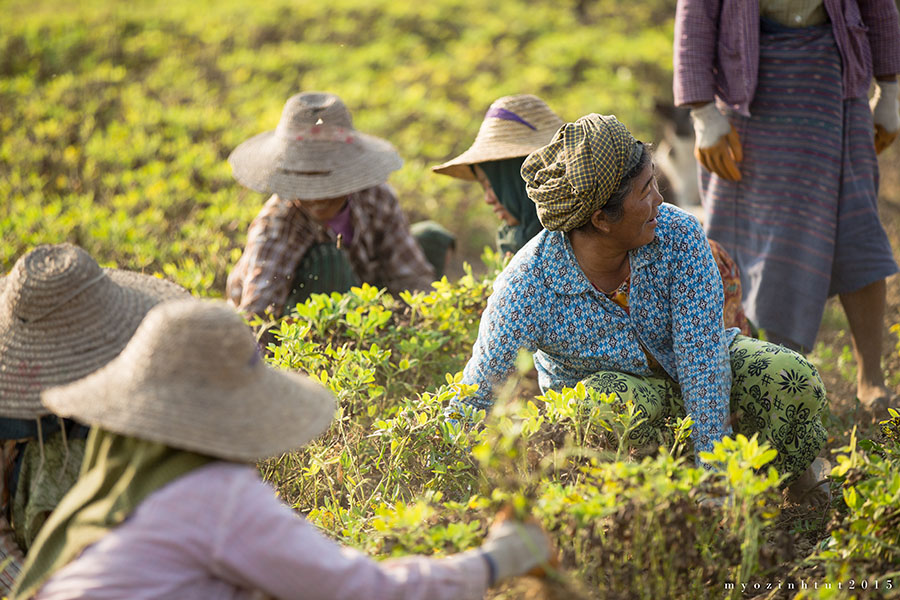YANGON — With the chance to store her harvest and wait for higher prices, Ma Zin Mar Khaing is hoping her family will earn more money this year than in years past.
Before, she could not wait for higher market prices and had to sell her crops to traders and brokers right after harvest in order to repay the loans her family owed.
Like many other families in Hlae Chaung Pauk village, in Magwe Region’s Pakokku Township, Ma Zin Mar Khaing’s family had to take out loans from local money lenders with interest rates of up to 100 percent to run its farm, which grows chilies, peanuts, beans and corn.
In late 2017, however, she was one of 124 female farmers from five villages in Pakokku who received a total of 80 million kyats ($59,000) in loans with annual terms courtesy of a pilot project being run by KBZ Bank and ActionAid.
The project provides loans of up to 1 million kyats per person, the exact amount determined by the size of the farm.
Ma Zin Mar Khaing received a 500,000 kyats loan with an annual interest rate of 13 percent in December.
The project aims to improve access to finance for female farmers.

Because of constraints including a lack of bargaining power within the family and collateral such as land titles often registered in a man’s name, women have a harder time than men in accessing formal financial services.
Ko Aung Min Naing, who manages ActionAid’s projects in Myanmar’s dry zone, told The Irrawaddy that access to affordable finance was not only key to reducing poverty but could also improve female empowerment in rural areas by unlocking women’s entrepreneurial potential and helping them provide for their families.
Five months after the loans went out, Ma Zin Mar Khaing said women in her village were more active at community meetings and playing a bigger role their families’ finances.
“In the past, women didn’t understand that they also had the right to join the meetings and discuss community welfare,” she said.
Ma May Zin Oo, however, from East Nangat village, said the 300,000 kyats loan she received from the project did not cover her expenses and that she still had to borrow from local money lenders.
“It would be good if they could provide more next year,” she said.
But Ma Zin Mar Khaing said the local lenders have at least brought down their own interest rates a bit since the pilot project began.
U Soe Tin Maung Zaw, senior general manager of KBZ’s loans department, said the project would be expanded based on the results of the first 12 months.
He said a portion of the bank’s returns from the loans will be re-invested into the communities and that the bank will help borrowers access markets for what they produce with the help of its regional and national networks.
For 27-year-old Ma Zin Mar Khaing, who has been overseeing the family’s four-acre farm since she was a teenager, the stress of so many years of high-interest loans has added up.
“I don’t want to owe other people any more. If you ask me what I want the most, it is to live with no debt,” she said.

















